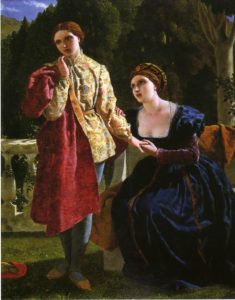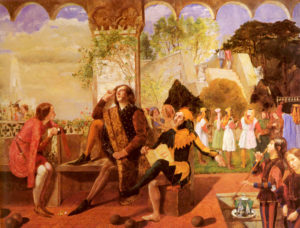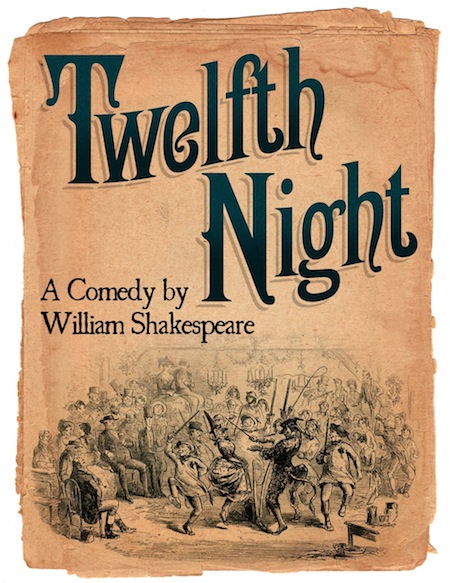Good morning, class.
I wrote about Hamlet a while back, which is one of my favorite Shakespeare plays. But even though most of his other plays are just as good, the 50-books list limits itself to just this one Shakespeare play. Let’s balance out the scales here.
I prefer Shakespeare’s tragedies—I’m also partial to Macbeth—but that’s no excuse for dismissing his comedies. Some worth mentioning are A Midsummer Night’s Dream and Much Ado About Nothing. . .but if I’m picking the one you need to read before you die, it’s Twelfth Night.

Viola and Olivia
The main character, Viola, survives a shipwreck thinking her twin brother has died at sea. She is a woman alone in the strange land of Illyria, without many options. . .so she disguises herself as a man, to serve in the house of Orsino, duke of Illyria. Viola quickly falls in love with Orsino, who is pining after Olivia, who falls in love with the man Viola is pretending to be. Then Viola’s brother turns up, and it’s all a hilarious catastrophe.
Some of the dialogue stands out as Shakespeare’s best: “If music be the food of love, play on,” (Act 1, Scene 1) and “Some are born great, some achieve greatness, and others have greatness thrust upon them” (Act 2, Scene 5) are well-known. One of Viola’s monologues, while not as well-known, sums up the chaos and ache of her situation—her disguise has caused more trouble than she’d intended, and she can only wait for Time to sort it out for her.
The plot is certainly dated—love triangle with a sitcom angle, it’s been done to death. And it’s not as “ghastly” and “unnatural” to play with the rules of sexual identity anymore (if it is, you need a different circle of friends). But the real drama here is about disguises and first impressions.

Depiction of Twelfth Night, Act II, Scene IV
Everyone in the play is wearing a kind of disguise. People are pulling pranks, falling in love with the wrong people, and pretending to be what they aren’t. . .but then everyone gets to reveal their true selves as well. Even the play wears a disguise—the excessively cheesy drama is a disguise for the play’s message, which is that first impressions are usually wrong.
As Viola holds her disguise together, she starts to see past the disguises of others, like the hidden wisdom of the fool or the hidden love of a friend. Wearing a disguise is something everyone does—sometimes intentionally, sometimes not. We only ever see outer layers, not the soul underneath. In some ways, Viola’s journey is about coming to terms with that.
But as much as I want to sell Twelfth Night, this isn’t the only Shakespeare play to try this. Most of his plays, including Hamlet, deal with the struggle of dual lives, disguises, pretending to be something else, lying. . .it makes for great drama and speaks at real human truths. Twelfth Night just does this in my favorite way, and it’s why I think it should make the list (I know my bias is affecting my decision, but I’m in charge here, so it’s obviously okay).
If you feel that I’m wrong, and some other work of Shakespeare’s belongs in the winner’s circle, post your comment below now or forever hold your peace! It’s been a while since I’ve had a literary debate, anyway.
Look forward to my post next week! I plan to have finished Jane Austen’s Pride and Prejudice by then.
Enjoy your week,
Prof. Jeffrey

0 Comments
1 Pingback